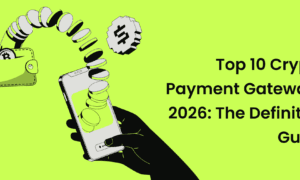 MOBU is a decentralised platform and end-to-end solution for ICOs to launch compliant security tokens on the blockchain. The CTO Frikkie van Biljon, will be discussing the Mobu project with us in this interview.
MOBU is a decentralised platform and end-to-end solution for ICOs to launch compliant security tokens on the blockchain. The CTO Frikkie van Biljon, will be discussing the Mobu project with us in this interview.
1) Could you please tell us about yourself?
My name is Frikkie van Biljon. I am a senior software developer from South Africa. I am currently working for one of the largest software development companies in SA and portrays the role of Tech Lead JavaScript dev. I have a Bsc in Information Technology obtained from the North-west University.
2) What is Mobu and what is the MOB20 standard?
Mobu is ultimately a solution for launching security tokens. The MOB20 standard will enable users to launch security tokens that are trade-able.
3) What inspired you to start building a platform for securities tokens?
Everyone is scared of the mammoth task of solving this problem. There are big regulatory and legal challenges to solve before one can launch a security token. It takes a lot of time and money to launch a security token – although this fits blockchain technology like a glove. We want to enable people to utilise the transparancy and immutability of the blockchain.
4) How will Mobu change how people buy and sell security tokens?
Once we raise 30m USD as per our roadmap we will develop the first decentralized regulatory friendly security token platform in the world. Decentralisation has many benefits to the users which include less price manipulation, data can’t be altered and it offers more trust and control to users.
5) Regulatory uncertainty about whether many cryptocurrencies & tokens from ICO projects are securities is a topic of frequent discussion. How do you foresee things playing out from a regulatory perspective?
To provide certainty about how securities are to be regulated – we have to make sure that MOBU checks all the boxes to conform. If we can achieve that – we would eliminate the uncertainty. MOBU will treat all ICO`s as security tokens to ensure more compliance in something that may be a grey area and also considering moving to the blockchain capital of the world, namely Malta, that has already a regulatory framework in place.
6) Obviously, almost all projects right now are claiming their tokens are “utility tokens” with very few exceptions right now. Do you think there will be a time when the majority of projects out there will stop claiming their respective tokens are utility tokens and they’ll start considering their tokens securities?
Many people are making these claims because they are firstly unsure and secondly scared. Unsure what the difference is and scared about regulation if considered as a security.
Unless a platform like Mobu can give clarity on these matters, the trend will remain.
7) Can you clarify whether Mobu is simply an open protocol or whether it’s a platform as well? Is Mobu also an exchange for securities tokens? If not, how will exchanges be able to list tokens that conform to the MOB20 standard?
Mobu is a platform implementing a unique protocol. The protocol is only the technical specification and set of commands a security token should implement. Our vision includes an exchange as well. We already have listing agreements in place with various exchanges. If we don`t raise 30m USD we will surely get listings on exchanges like GBAX and tZero at time of our launch.
8) Can you tell us more about the technology and components of the Mobu Platform that make it function?
Mobu is built on top of Ethereum and an ERC20 token. We are building an abstract smart contract from which other tokens can extend. This will give us the benefit of all tokens taking on the same base form, but still be unique in their own respective way.
9) Let’s assume security tokens become increasingly common and a securities trading platform like Mobu is able to safely and securely allow only qualified individuals to trade securities in compliance with applicable security laws. Won’t interest in owning cryptocurrencies subside perhaps due to the inherent nature of your protocol which some would argue violates a central tenant of cryptocurrency; that it can be owned by anyone, traded by anyone, and without government interference?
Very good question. Firstly the SEC recently stated that ETH and BTC are utility tokens and UK has also mentioned that they support innovation in the cryptocurrency/fintech environment. If your concern is that unlimited money is moved from country X to country Y, this is something that can already happen via BTC and ETH but in a MOB20 standard protocol their ETH addresses will be KYC`d(linked to a physical person or company) and this information can be disclosed. Thus making use of blockchain technology but in a more controlled environment.
10) Presumably, it’s possible that a token might be considered a token in jurisdictions known for restrictive security laws (such as the U.S.), while in other less restrictive jurisdictions, the token may not be considered a security at all. Even if it is considered a security, those jurisdictions may have laws that allow people to trade securities much more freely and with less restrictions. How will your platform deal with this conundrum? Isn’t this unfair to individuals who live in less restrictive jurisdictions who want to buy or sell a token that conforms to the MOB20 standard?
We will treat all tokens as security tokens to ensure there is no grey area as mentioned. The MOBU platform will be very user-friendly to ensure this process will be with ease and convenience for the users.
11) How does Mobu’s token offer integral and functional value to your ecosystem? Why is it necessary? Why would you say the MOBU token can aptly be considered a utility token, yet presumably so many other tokens and coins may not be?
Because MOBU will provide services a user can pay with the MOB20 token and there is no underlying value of ownership with no dividends nor profits back to token holders. The SEC stated ETH is a utility token because it is a decentralized platform(for applications) and on the same basis MOBU is a decentralized platform(for security tokens).
In the Mobu ecosystem the token issuers(real future companies on MOBU) post bounties to get service providers, Developers earn MOBU tokens for creating smart contracts, KYC providers pay MOBU tokens to join the network/ecosystem, Investors pay MOBU tokens for KYC process, legal representatives and escrow providers earn MOBU tokens for offering services. Mobu additionally will acquire bank partnerships to ensure fiat can easily be converted to crypto all around the world and MOBU tokens can be earned worldwide. Furthermore, Lockup utility will ensure scarcity of MOBU tokens!
12) How would you compare and contrast your securities token platform to others out there such as Polymath? What makes Mobu different? Also, do you think there’s room for multiple security token platforms out there or do you think that a single platform will likely end up having all or almost all of the market share if/when security tokens become abundant?
One can only have growth if there is a reason to grow. Competition in the market will drive this. There is definitely room for more than one platform. It is a 80 Trillion USD market and remains virtually untouched.
Mobu brings some unique features to the table: Investor Account Portals, the conversion from fiat to crypto, Escrow services and a unique lockup utility.
13) How much do you intend to raise in the Mobu Token Sale and what are the steps for contributing?
We will have 2 rounds, one Pre-sale and one Main ICO.
Presale will start on 1 Sep 2018 and finish on 15 Sep 2018. Softcap is set at $ 1 000 000 in ETH.
Main ICO will start on 1 Dec 2018 and finish on 31 Jan 2019. Hardcap is set at $ 35 000 000 in ETH.
Investors will be able to invest in ETH, BTC, BCH, DASH, LTC and FIAT.
14) What are some of the biggest challenges you’re currently having both with developing your platform and also when it comes to conducting your own ICO?
Most of the challenges Mobu is experiencing are also the ones we try to solve. Finding the right KYC providers, partnering with the right advisors etc.
15) What’s going to happen to the Mobu after the token sale concludes and what where do you see things in 5 years?
We will execute our roadmap as stated on our website. Our first order of business is to get our token listed.
16) Do you have more information for our readers?
Similar to how the HTTP defined the Internet, the MOB20 standard protocol will define the securities market! The benefits of security tokens to conventional shares are endless. Change is never painful, only the resistance to change is painful!
For more information please visit our website at: www.mobu.io



































